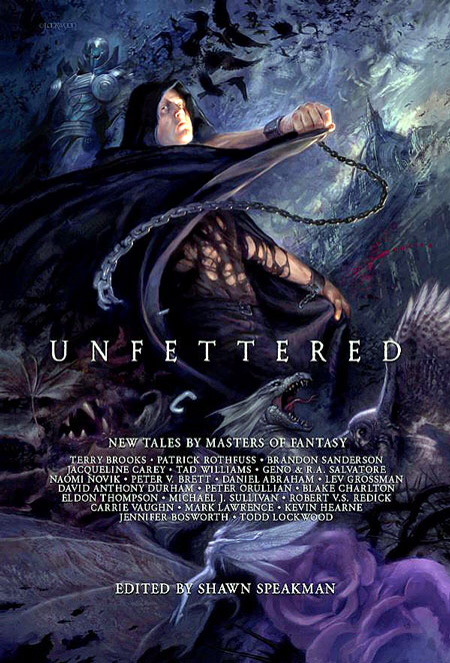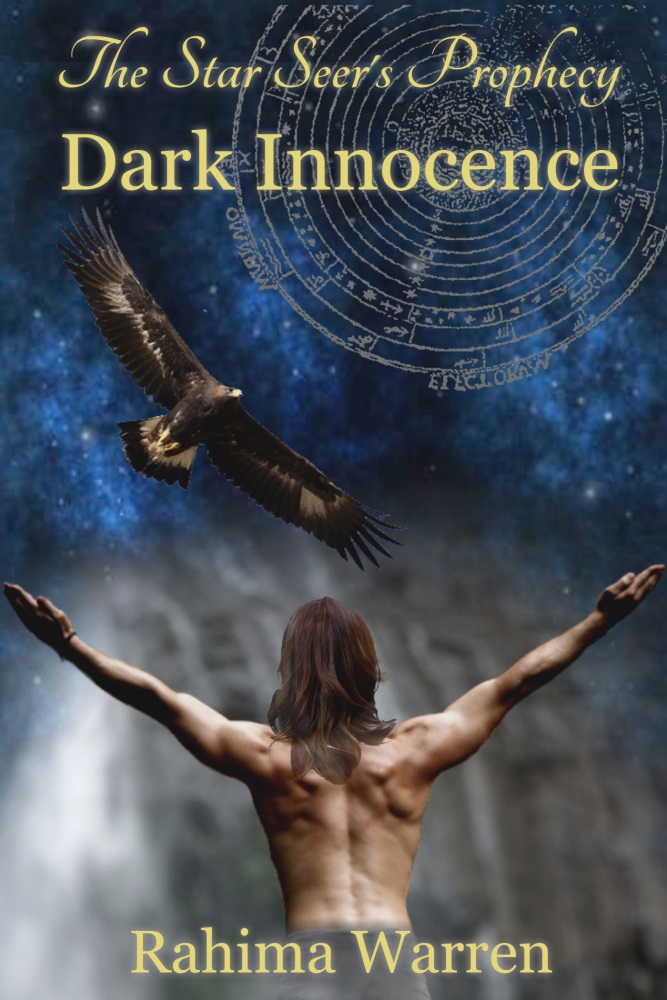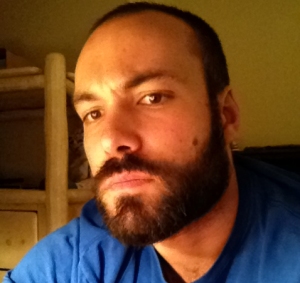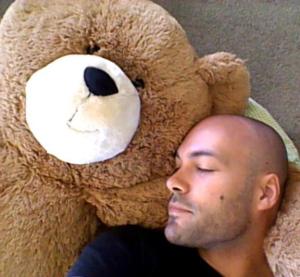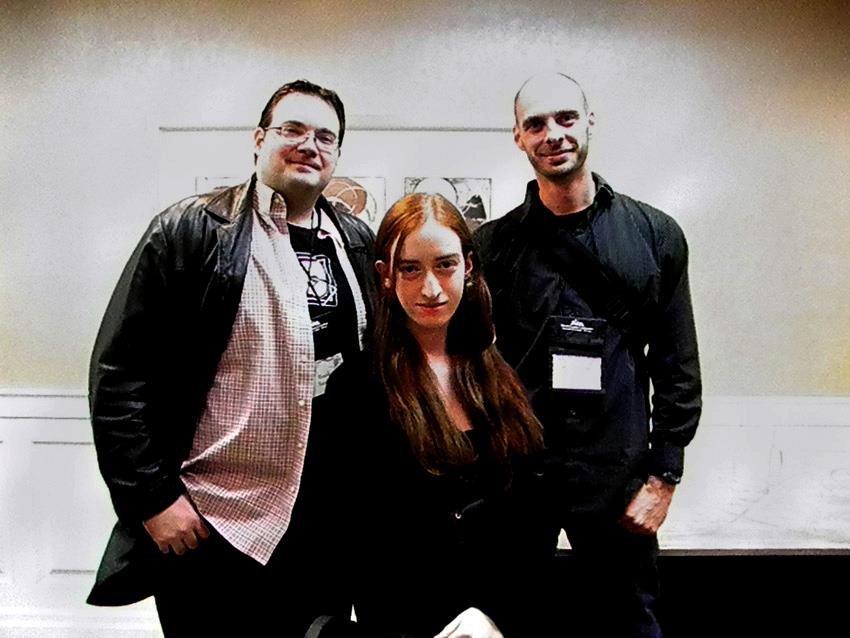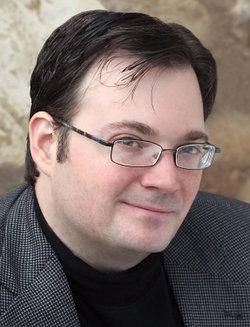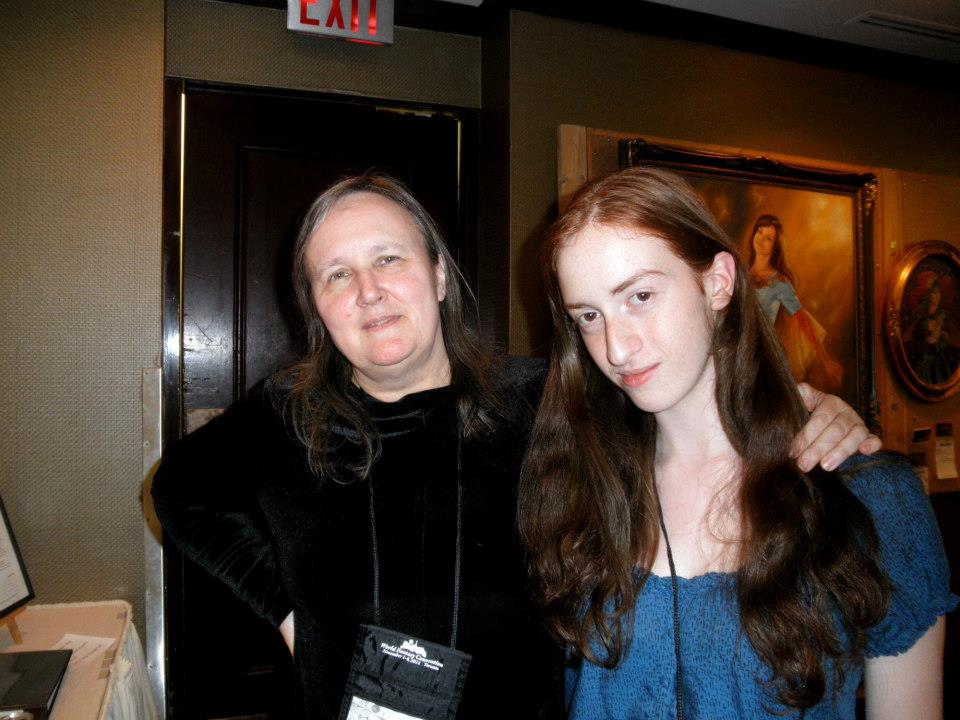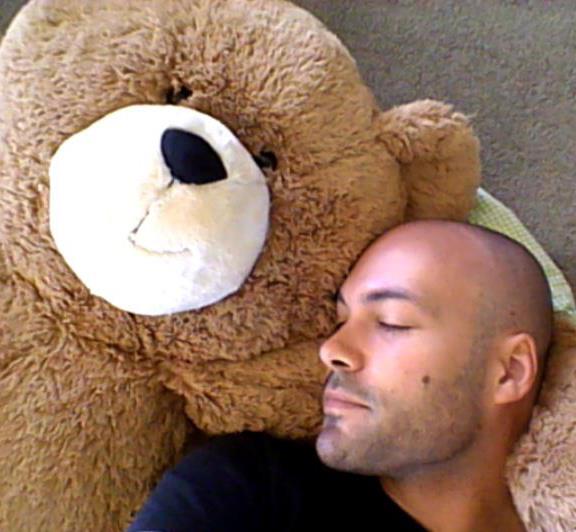
Interview with Zachary Jernigan
A few days back I had the opportunity to interview the author of No Return, Zachary Jernigan. We discussed all manner of things from writing and inspiration, to criticism, zombies and ice cream! Enjoy, and do be prepared — general silliness ensued.
—
For convenience, Z = Zachary Jernigan, and R = Rebecca (me).
R: Could you tell us something about yourself that we might not already know?
Z: I have an eating addiction. BOOM — way to start this interview off on a rollicking note.
No, but in all seriousness, I’ve dealt with it for years. I fixate on food in a very Obsessive-Compulsive way (though I suppose that isn’t unusual for a person who’s been dealing with OCD since he was eleven). My day doesn’t feel full unless I’ve eaten a huge evening meal. It’s very likely a genetic trait, as my mother worried over food as a child just as I did, and also deals with similar issues.
I do laugh about it when I can, because it has produced some unusual events. For instance, in my early twenties — and I say this with more shame than pride, but still smiling at the memory — I once ate over 80 chicken wings at an informal eating contest. And that was nowhere near enough to make me full, but then again I was in my prime. Now 80 chicken wings would kill me.
R: Chicken wing awesomeness. I think I’d love to be able to eat that much, simply because of how delicious they are. I can eat like… 15-20 at most.
I believe I’ve seen you post about this a few times over on Facebook,.. But what are your plans regarding writing a sequel to No Return?
Z: Well, it’s a bit of a complex answer that will hopefully come clear in the end.
In my contract for NO RETURN, Night Shade Books has an option on the second book in the “series.” (NO RETURN was originally envisioned as a standalone that would nonetheless be continued and “completed” in a second book.) What this means is that NSB has the right of first refusal on the sequel. In general, this is both a good and a bad thing, though mostly good from my standpoint. Unfortunately, what soon became clear is that Night Shade was closer to insolvency than I thought, so the issue of my sequel became more complex.
I had no idea if they would be around to buy my second book even if they were interested. Potentially — if NSB went into bankruptcy — I might not even be able to write and sell a sequel on my own. I sort of let my worry over these issues cripple me for a while. I was very unproductive, and that’s saying something for a guy who refuses to tie his shoes because it’s too much work.
When Skyhorse/Start decided to try and buy NSB’s assets, I began to feel a little bit of hope. Now that the deal has actually closed, I have a great deal to be excited about. Sure, it could still not work out in my — or my fellow authors’ — favor, but it’s potentially a huge step in the right direction. Skyhorse/Start seem very intent on becoming a genre publisher of stature, and I think they’d be wise to invest on projects that have already begun. Not to toot my own horn, but I think I’d be a good investment. My reviews have been incisive and detailed, but overall pretty favorable (for which I’m immensely grateful), and I think a sequel can build on that headway.
So… We’ll see if a contract is forthcoming. I hope so, as I’m ready to begin writing the sequel.
R: That makes sense; I can see why you didn’t want to jump into the second when it was still a mess with NSB. I do hope you’re able to, and that you do write a sequel. Or at the very least, that we can look forward to reading more novels from you in the future.
Which leads quite nicely into my next question…Do you have any other projects that you’re currently working on? (And will Space Unicorns be involved?)
Z: At the moment, I’ve got two short stories I’m working on for anthologies I’ve agreed to appear in.
(For whatever reason, a few people now want me to write stories for them. In the most recent example, the editors have even included my name on the cover — before they’ve even seen my story! This seems unwise, bordering on insane. I could indeed produce a story that has nothing to do with the theme and has space unicorns running around doing nothing in particular! In fact, hell, that sounds good…)
I also have a novel-in-progress that is not very in-progress at the moment. I really like it, and I’ve successfully used it as part of a proposal to one of my favorite publishers, and if they bite I’ll probably write it, but…
Wow. That all sounds like the exact opposite of what I should be saying. I should be saying that of course I’m working like mad on another novel, and I have every confidence that it will be picked up and go on to win every award that— But I prefer being honest. I’m new at all of this, and rather gun-shy a lot of the time. I’m moving at a pace that will produce work I’m proud of, but oftentimes it seems too slow.
R: What was the main driving-force behind writing No Return? Your biggest inspirations?
Z: My main driving force was desperation, honestly. In the summer of 2010, I was not in a good place. I’d just spent a disastrous semester of grad school (I was in the Stonecoast MFA Creative Writing program) disappointing my mentor, James Patrick Kelly, with crappy rewrites of already crappy stories. I felt really low, entirely unsuited to be in the program with so many awesome and hardworking writers. I so desperately needed to get some of my story ideas out, but I was flailing away, struggling with my lack of motivation and fear.
One day, tired and angry, I just said, “Screw it. I’m writing a novel with all the cool crap I can think of crammed into it.” I’d never written a novel before, but somehow I did it. (I say “somehow” because, looking back on it, I’m kind of amazed that whiny dude ever managed to sit down for six months straight and write. Apparently, someone put something in that guy’s water, because I remember him and he was a lazy idiot.)
I guess reaching a point of complete self-disgust can be useful.
My biggest inspiration, undoubtedly, is my desire to create a reading experience similar to those that changed my life. I remember, vividly, reading Roger Zelazny for the first time — or James Tiptree, Jr., or Cordwainer Smith, or Joanna Russ or Samuel Delany or Sean Stewart. The sense of vastness, of new vistas and untold myth, floored me as a young reader. With NO RETURN I wanted to build a world that felt vast and panoramic, full of myths and cultures, that might, just might, catch someone’s imagination in the way mine had been caught.
I don’t kid myself that I achieved my goal fore even a fraction of readers out there — Hey, I’m competing against the best! — but the possibility of occasionally hitting the mark for someone is what spurred me on.
R: Those are great inspirational factors to have, they are each fantastic authors… and I do think you succeeded with making the world vast and panoramic. I do not think it’s a stretch to say that your name can and will be put alongside those in the future, should you keep writing. You have the talent.
Describe No Return in 10 words or less!
Z: Well, thank you! That means a lot to me, Rebecca.Old world, crazy magic, crazier sex, alchemical astronauts, ANGRY GOD.
R: Were there any characters/scenes you enjoyed writing more than others? What were they? Or perhaps, which ones did you not like writing?
Z: Certainly! I really loved writing Churls. She was — and is! — without qualification my favorite character in the book. She’s just… Well, she’s not an emotionally wounded and arrogant nut like Vedas, a constructed man dealing with daddy issues like Berun, or just simply an awful person like Ebn or Pol. Sure, she’s got issues of her own, but they’re the kind that all of us could deal with (other than being haunted, I guess). She is the most self-assured and plainspoken, and undoubtedly the one you’d most want to go on a bender with.
Her scenes with Berun were the easiest and most enjoyable scenes to write. I’m not a person who’s blown away by his own imagination or skill — most of the time, I read what I’ve just written and want to tear my hair out (that is, if I had hair) — and so it was a nice change to be happy with something for a change. Honestly, I think the two characters just fit together, complementing each other’s traits. In truth, I think they’re kind of cute. When they’re together in a scene, it’s as close as the book comes to a buddy movie.
As for scenes I didn’t like writing — um, can I just say “all of them?” Probably not. It probably wouldn’t even be true. Writing is a struggle, not something I actually enjoy while I’m doing it, but I’d be lying is I claimed it never had its moments.
I can make one unqualified comment, however: Vedas was awful to write. All of his chapters were horrible for me. Because he’s the character who most closely mirrors me (not physically, of course, but emotionally), I had a difficult time getting him to feel at all right. Paradoxically, I find that the closer something is to reflecting reality, the harder it is to make it feel authentic.
R: I loved Churls. She has her flaws, she’s not perfect or anything, but over-all she’s a well-rounded and strong character. I believe I may have mentioned this in my review, if not, I should go back and change that.. But I do for the most part, like how you’ve written the females in your novel. Using Churls as an example, she wasn’t just the token bad-ass, “super hot” female character. You know the ones that are sometimes just thrown into the story for the sake of being there? Yeah, she wasn’t one of those.
Back in March you made a post on Facebook regarding your novel, and wanting people to take bit more of a sexism/feminist perspective on it for you, and getting more reviews that touched up on those topics — especially because at that point all but a few of your reviews have been from guys. Is that still something you’re worried about, now that you’ve gotten a few more reviews on it?
Z: Wow. Great question. Yes, I do continue to be worried about that. There’s so much ugliness that we carry as human beings, and so much of that ugliness is buried below conscious level. I’ve tried very hard to unlearn the privileged — and thus bigoted in a very particular way — perspective I’ve inherited, but it’s an ongoing process. And while I hate the thought of being called out for a mistake I wasn’t entirely aware of making, it’s necessary that I be called out if I’ve written something problematic and hurtful.
Even when I’m a failure at being humble, I believe in the virtue of humility. I might be very, very wrong in my portrayal of women (and other peoples who are marginalized every day in the real world), and so I view it as my responsibility to not be arrogant and defensive in the face of criticism on that count. I want to keep getting better at writing people. To do that, I must have some courage in addition to humility: I must not be fearful of the ugliness I carry around with me.
I’ve been lucky to have, thus far, passed without major accusations of sexism in NO RETURN. I’m happy with that, and yet I do wonder if people are being too forgiving of me. The genre of science fiction and fantasy, while immensely innovative on so many levels, is still on average a bit adolescent in its treatment of gender. The whole mass of us, readers and writers, need to set a higher standard — a standard that is all too often not being met.
I’d like, entitled white American male that I am, to have a hand in asserting this priority.
R: It’s definitely an admirable goal, and a higher standard definitely needs to be set; rather than keeping with the tradition gender roles which have been fairly static, not only in the fantasy genre, but in writing as a whole.
So, Jeroun is a pretty fascinating and dynamic world. Could you give us some insight into the creation of it all, and how the world, elders, and constructs came about? Or was it just part of the aforementioned “all the cool crap” you could think of, being crammed into it?
Z: Thanks! Unfortunately, this is a question I don’t really know how to answer. It’s a great question, of course (I’ve asked it of many authors), and Lord knows I’d like to be able to answer it well, but I’ve never been all that good at coming up with explanations as to how ideas pop into my head. It’s not really rational, what happens when I start brainstorming. I just think… “Gee. That sounds neat.”
Which is a really, really stupid answer, I know. it’s kind of like saying, “…and then the cat just appeared out of nowhere. Now he’s mine, and I feed him nothing but organic chicken bits because I love him.” Okay, it’s not really like saying that exactly, but I hope the point is clear. I don’t like it when a “creative type” appears to be channeling a mystic. Ideas don’t just pop into existence like a little ghost whispering in your ear. They come from somewhere.
My answer, given that fact? I’m just remixing stuff from everywhere. Jeroun is a lot like a lot of other old, kind of worn-out planets. I hope I threw in enough other elements garnered from a long time of reading sff literature to really entice the reader, of course, but to me it’s so clear that I’m standing on the shoulder of giants that it’s tough to look at what I’m doing as creative. It’s more like stealing.
Not that stealing isn’t fun…
R: What has been the toughest criticism given to you as an author? What has been the greatest compliment?
Z: The toughest criticism came from my ex-mentor and good friend, the author David Anthony Durham. Now, I’ve always been kind of intimidated by the guy. He’s a great writer and often a hard-to-read person. It’s tough to know, basically, if he likes you. Don’t get me wrong — he’s the nicest guy in the world and I think he’s amazing, but he is… Well, he’s David, not Dave. Don’t call him Dave. Anyway, one night at a residency for my MFA program, he gave me the devastating (and true) appraisal that he didn’t know if I had it in me to be a professional author. Not because I wasn’t talented — he kindly told me I was — but because I didn’t know what I wanted. He said that this would limit me, and keep me from committing to anything.
He was right, and it killed me to hear it. In my darker moments — which are not all that rare, honestly — I still think he’s right.
The greatest compliment is harder. I’ve been so, so, so lucky to have so, so, so many awesome people in my life — people who support me so much I hardly feel like I’m doing any of the accomplishing. (Despite how that may sound, it’s a very good feeling, knowing you have so much to be grateful for.) Honestly, whenever anyone reads my book and reviews it with an attempt at objectivity, weighing its positives and negatives together — whenever someone really looks deep at my work and makes the effort to put their thoughts down in an organized, classy way — that is the greatest compliment. That kind of effort in response to something I wrote just stuns me.
R: Perhaps once you find out what exactly it is that you want, that self-limitation will dissipate though? Anyways, in the event of a zombie apocalypse; what is your survival plan?
Z: My survival plan is to just go on a killing spree (though they’re technically undead, so…). Not to be ultra-violent or anything, but I think I’d like to put a baseball bat into a zombie’s head. I mean, I’m not violent — at all; last fight I was in was in high school — but I’d like the excuse to go a little mad. I don’t care about guns, but the up close and personal? Swords, bats, hammers: that sounds like fun.
Basically, though, it’s not a survival plan. It’s just a fantasy of killing zombies. I’d probably die pretty quickly, but at least I’d have some fun on the way out!
R: Where did you get your giant teddy bear? I swear that things look cuddly as hell.
Z: Ha! Actually, I borrowed it from my mom. She got it from my dad for Valentine’s Day. It is AMAZINGLY cuddly. Since discovering how cuddly it is, I’ve forsaken human companionship. It’s kinda gross, me and that bear.
R: Who is your favourite author, and what are your favourite novels?
Z: Oy vey, that question. Honestly, I have no idea who my favorite author is. There are too many to choose from, and so many of them have works I don’t like to balance out the ones I do. But favorite novels? That’s easy. Resurrection Man, by Sean Stewart. Creatures of Light and Darkness, by Roger Zelazny. Flesh and Gold, by Phyllis Gotlieb. Agyar, by Steven Brust. Aaaaaaaannnnnnnnnd… a bunch of Discworld books.
R: Ha. I do love asking that question, the reactions are always entertaining.
Okay, so… I swear I’m not stealing this question from Nick and his interview with you over on SFSignal, I’ve asked it to a billion other people.. (and his was slightly different) but if you could be any flavour of ice cream, what flavour would you be?
Z: Thief!
Well… I answered Nick’s question with “coffee, with Heath bar pieces,” but my opinion on this changes. Today I’m going with French Vanilla with Reese’s Pieces and chocolate swirls.
R: Unless there’s anything else you’d like to add, that’s all I have! Thank you for the wonderful interview. It’s been a pleasure.
Z: Oh, it was so fun! Thank you immesnsely, Rebecca!
–
Thank you again to Zachary for the enjoyable interview! I hope you guys enjoyed it as much as I did!
Related articles
- No Return by Zachary Jernigan : Review (archeddoorway.com)
- (Guest Post) Space Unicorns: The Most Effective Author Promotion Tool…. Ever! (archeddoorway.com)
